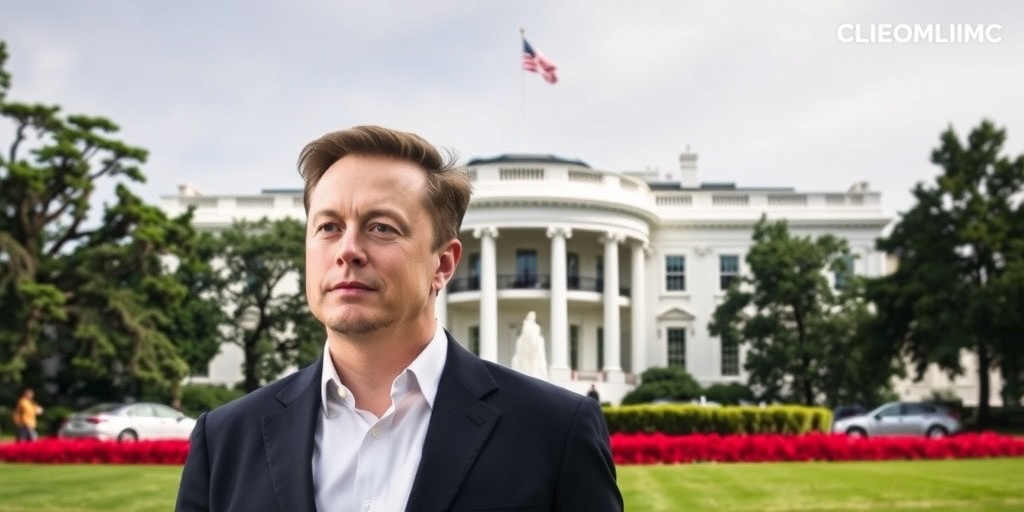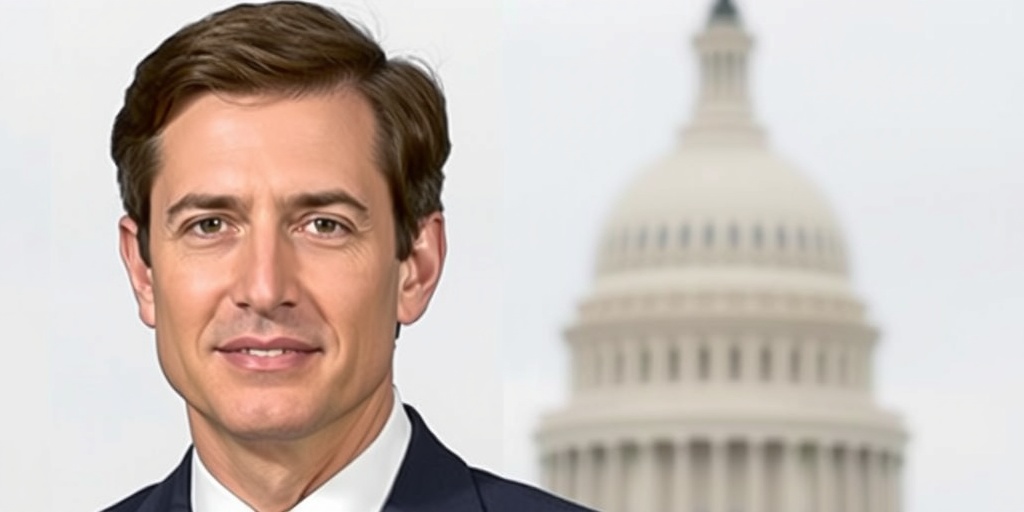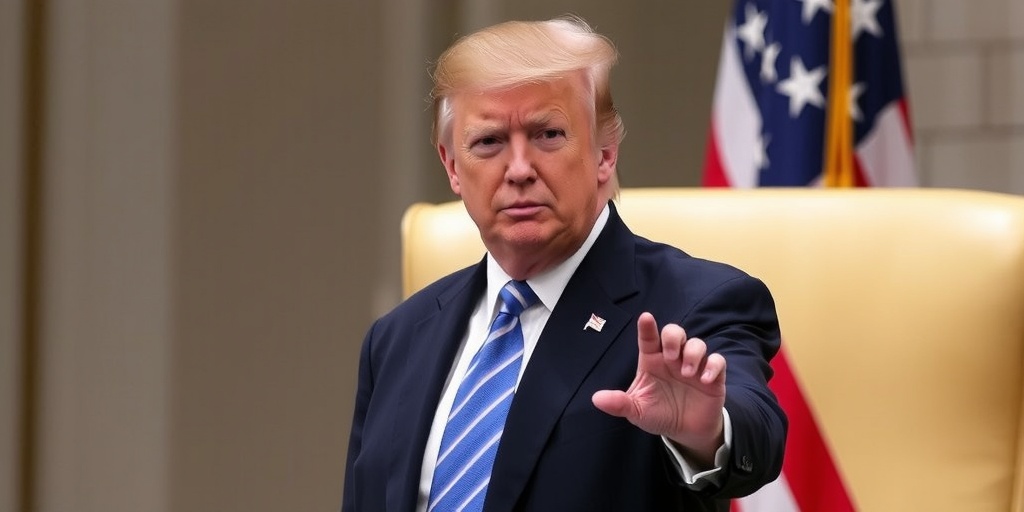Now Reading: Elon Musk Anticipated to Utilize Office Space in White House Complex
-
01
Elon Musk Anticipated to Utilize Office Space in White House Complex
Elon Musk Anticipated to Utilize Office Space in White House Complex

Elon Musk to Establish Office Space in White House Complex for New Efficiency Initiative
Elon Musk is poised to play a significant role in the Trump administration’s efforts to reform governmental operations, as he is set to establish office space within the Eisenhower Executive Office Building, which is adjacent to the White House. This strategic location will facilitate Musk’s accessibility to President-elect Donald J. Trump as he launches the Department of Government Efficiency, informally dubbed DOGE. The initiative aims to initiate cost-cutting measures within the government, reflecting Musk’s commitment to reducing government expenditure.
Reports indicate that Musk’s connection to Trump has been mutually beneficial. The billionaire entrepreneur has contributed hundreds of millions of dollars to support Trump’s campaign for the 2024 election and has maintained a close relationship with him throughout the transition. This close association has allowed Musk to participate in various official meetings, including a significant foreign call, and influence decisions regarding staffing and cabinet appointments.
While Musk is at the forefront of the DOGE initiative, details regarding the project’s operations and budget have remained largely undisclosed. Currently, the team associated with DOGE is working out of Musk’s SpaceX offices in Washington, D.C. There is speculation, however, concerning whether Vivek Ramaswamy, Musk’s collaborator on the project, will also have a designated office within the Eisenhower Executive Office Building.
DOGE, while ambitious, has raised eyebrows due to its unconventional nature—it is not an official department as recognized by Congress, which presents legal challenges concerning the extent of outside influence in governmental affairs. This aspect has sparked discussions about regulatory compliance and the ethical implications of allowing private sector figures to wield significant influence over government operations.
Transition officials have indicated that Musk may be granted special government employee status, a classification that would allow for flexible financial disclosure rules compared to standard government employees. Should Musk pursue this path, he is likely to forgo any salary, but there are legal nuances that need to be addressed regarding how the Trump administration will define his role and integrate DOGE within the broader executive branch framework.
Complications may arise relating to ethics regulations that govern conflicts of interest. Government employees—including special government employees—must adhere to a range of legal obligations concerning potential conflicts. In Musk’s case, given that several of his companies hold substantial federal contracts, this could preclude DOGE from addressing any related issues should Musk take on an official role.
Should Musk and his team be classified as special government employees, they would be required to file financial disclosure forms. However, it remains unclear how transparent the Trump administration will be regarding these records, especially if they voluntarily choose not to accept government salaries.
The transparency of the DOGE initiative is further complicated by government laws concerning advisory committees. The Federal Advisory Committee Act necessitates public access to meetings and documentation for committees that interact with external individuals providing advice to the executive branch. Depending on Musk’s decisions regarding his status and that of his team, DOGE’s activities might fall under this regulatory framework, demanding public accountability.
The implications of Musk’s potential role in DOGE extend beyond procedural regulations. Pertinent to this matter is the Freedom of Information Act (FOIA), a law that grants individuals the right to access governmental records with specific exemptions. While the president and his closest advisors enjoy FOIA exemptions, the broader bureaucratic structure is generally subject to such requests. This variance raises questions regarding the accountability and transparency of DOGE, particularly if Musk’s team operates outside traditional governmental oversight.
While there is much speculation surrounding the direction and dynamics of DOGE, Musk’s forthcoming decisions on whether to assume special government employee status will substantially impact the project’s framework and operations. The coming days are critical as the incoming Trump administration prepares to navigate the complexities of integrating private sector operatives into governmental roles, with Musk at the helm of this uncharted territory.
As the discussions continue, officials connected to Trump’s transition team and those involved with DOGE have yet to respond publicly to inquiries regarding the specifics of this ambitious initiative. The unfolding circumstances highlight a significant intersection of business acumen and public policy, raising vital questions about the future of government efficiency in the United States.
In summary, Elon Musk’s establishment of an office space in the White House complex represents a bold step towards potential governmental reform, with the Department of Government Efficiency aimed at streamlining operations and reducing expenses. As the project evolves, it will be essential to evaluate its transparency, regulatory compliance, and the broader implications for the intersection of technology and public service.
Stay Informed With the Latest & Most Important News
Previous Post
Next Post
-
 01New technology breakthrough has everyone talking right now
01New technology breakthrough has everyone talking right now -
 02Unbelievable life hack everyone needs to try today
02Unbelievable life hack everyone needs to try today -
 03Fascinating discovery found buried deep beneath the ocean
03Fascinating discovery found buried deep beneath the ocean -
 04Man invents genius device that solves everyday problems
04Man invents genius device that solves everyday problems -
 05Shocking discovery that changes what we know forever
05Shocking discovery that changes what we know forever -
 06Internet goes wild over celebrity’s unexpected fashion choice
06Internet goes wild over celebrity’s unexpected fashion choice -
 07Rare animal sighting stuns scientists and wildlife lovers
07Rare animal sighting stuns scientists and wildlife lovers





















